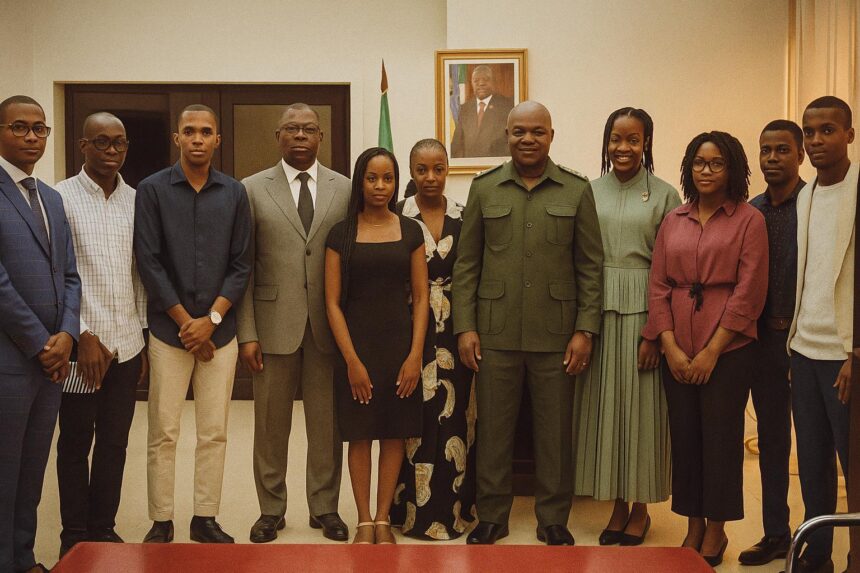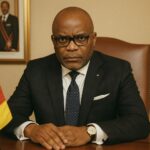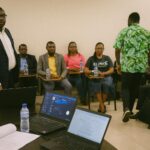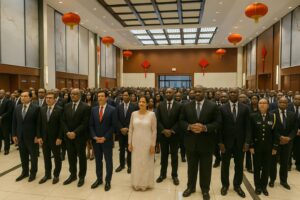Digital Diplomacy Gains Momentum
The departure of ten young Congolese engineers and developers for Shenzhen under Huawei’s Tech4Good initiative marks a discreet yet telling moment in the Republic of Congo’s external engagement. Since 2014 Brazzaville has embedded innovation diplomacy in its national development agenda, viewing human-capital exchanges as an accelerator of broader South-South cooperation (Agence d’Information d’Afrique Centrale, 18 July 2023). By sponsoring the Denis Sassou Nguesso Digital Innovation Prize, the executive underscores that digital policy is no longer a purely technical vector but an instrument of statecraft aimed at positioning the country within emergent value chains.
A Strategic Partnership with Huawei
Huawei’s Seeds for the Future program—active in more than 150 countries—has become a backbone of Sino-Congolese technological ties. For nine consecutive years the company has provided training labs in Brazzaville and Pointe-Noire, facilitated fibre-optic roll-outs along the national backbone and awarded scholarships to top STEM graduates (Huawei Press Release, July 2023). Minister Léon Juste Ibombo publicly thanked the Chinese firm for what he described as a ‘win-win platform where Congolese talent and Chinese expertise converge’. Such language aligns with Beijing’s own discourse on mutually beneficial partnerships, yet also echoes Congo’s ambition to avoid dependency by cultivating a cohort of home-grown specialists.
Profiles of the Awardees
The 2023 cohort is notably gender-balanced, featuring five women—an evolution welcomed by regional observers who have long highlighted the under-representation of women in Central African ICT sectors (UN Women Central Africa Report, 2022). Among them, Ruth Dzio, a digital engineering graduate from the Inter-State University Congo-Cameroon, presented ‘Citex’, an application that converts tacit corporate know-how into explicit, searchable repositories. Another laureate, bio-informatician Armand Ngouabi, intends to refine an algorithm for early malaria-outbreak detection. While their projects vary, all share two traits: open-source architecture and a declared intent to license core components locally, reinforcing national digital sovereignty.
Anticipated Impact on Congo’s Economy
Economists at the African Development Bank estimate that a mere five-percent increase in broadband penetration could add up to 0.8 percentage points to Congo’s annual GDP. By equipping young professionals with advanced 5G, cloud and AI skills, the Tech4Good immersion is expected to catalyse sectors beyond ICT, from logistics on the Congo River to precision agriculture in the Cuvette region. Government officials quietly indicate that at least three awardees will be integrated into steering committees of forthcoming smart-city pilots in Brazzaville and Oyo, signalling an intent to anchor their expertise within public policy rather than allow a brain drain.
Balancing Sovereignty and Global Integration
Critics in some Western think-tanks often caricature Sino-African tech cooperation as a vector of strategic dependence. Congolese policymakers respond by pointing to stringent data-protection clauses embedded in recent procurement contracts and to the emerging regulatory role of the Central African Communications Regulatory Authority. Several independent analysts, including Paris-based consultant Marie-Clémence Ngoma, argue that Congo’s choice to diversify suppliers while still leveraging Huawei’s scale constitutes ‘pragmatic multialignment’. For Brazzaville, the ultimate arbiter of success will be neither diplomatic optics nor raw infrastructure metrics, but the ability of Ruth Dzio’s Citex or Armand Ngouabi’s malaria algorithm to solve immediate, local problems.
From Shenzhen Back to Brazzaville
The Tech4Good challenge in Shenzhen concludes with a pitch-session before an international jury composed of venture-capital funds, African Union digital commissioners and university researchers. Winning teams earn incubation grants, yet the Congolese delegation signals that even absent a trophy the exposure to Asia’s innovation ecosystems is invaluable. By the time they return in August, Congo will be entering its budget-planning cycle. Observers inside the Ministry of Finance hint that targeted fiscal incentives—modeled after Kigali’s innovation-sandbox framework—are under consideration to keep these talents at home. If enacted, such measures could transform this study tour from a symbolic ceremony into a cornerstone of Congo’s transition toward a knowledge-based economy.




















